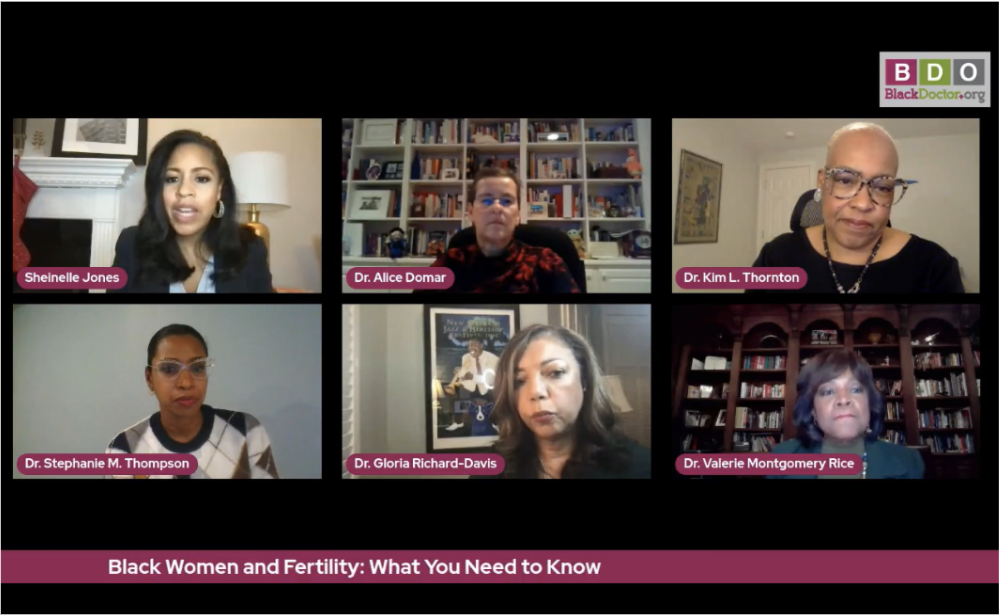An in-depth discussion about black women and infertility is highlighted in this Facebook Live. A panel of doctors share their knowledge and guidance about this topic:
What is infertility?
Dr. Valerie Montgomery Rice: Infertility is defined as not being able to get pregnant or conceive after one year of unprotected sex. We know that 6% of married women age 15 or 44 in the United States are unable to get pregnant after one year. And we know that 12% of women age 15 to 44 in the United States have difficulty get in pregnant are care in a pregnancy to term. The other interesting thing we know is that both men and women can contribute to infertility. Many will struggle with infertility and seek help to get become pregnant. But it’s always sometimes thought about as only a woman problem. And we know that’s not the issue. And about 35% of couples with infertility, a male factor is identified along with the female factor and about 8% of couples with infertility a male, the only identifiable cause now because fertility is known to decline steadily with age. We recommend that women who are age 35 years or older, come and see a doctor after six months of unprotected sex. A lot of times people say, well, what type of doctor should I see? We really do recommend that women see reproductive endocrinologists in consultation with their gynecologist, because they can help with identifying the cause of infertility. And also if a woman is having fibroids or recurrent pregnancy loss, which is defined as having two or more consecutive miscarriages and a reproductive endocrinologists is someone that they should be able to see.
Can the COVID vaccine lead to infertility?
Dr. Valerie Montgomery Rice: First, there is no evidence that the vaccine can lead to a loss of fertility. There is no evidence that the vaccine can lead to a loss of fertility. Now, while infertility was not specifically studied in the clinical trials of the vaccine, no loss of fertility has been reported among trial participants who are among the millions of people who have received a vaccine since it’s been authorized. We have not also seen any signs of infertility in animal studies. We know that there is vaccine hesitancy there, but I want women to be informed. And to know that the studies have not shown any evidence that the vaccine can lead to a loss of fertility. What we have seen though, is that COVID 19 infection puts pregnant women at an increased risk of severe complications and even death yet only 22% of black women who are pregnant are vaccinated.
What are some of the things that impact fertility?
Dr. Gloria Richard-Davis: There are some common factors that affect black women. Such as uterine fibroids, aging, and male factors. So, we know that black women have a very significant burden of uterine fibroids. It affects upwards of 80% and it can cause heavy menstrual bleeding, pai,n anemia, and yes, sometimes fibroids impair infertility when located inside of the uterus. So in the cavity where implantation occurs. They can also be in the wall of the uterus, which is where they are most commonly located. Also things like preterm, labor miscarriage, uh, abnormal presentation, abnormal bleeding can affect fertitlity.
For more information on infertility in African American women. Click the link to hear more. https://www.facebook.com/BlackDoctor.org/videos/1063839477745254









